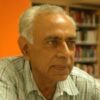Education and Learning— Views of Mahatma Gandhi
TRANSCEND MEMBERS, 20 Dec 2021
Dr. Ravi P. Bhatia – TRANSCEND Media Service
For most countries of the world learning or education is an essential requirement for children’s development. It is well known that higher the educational levels better will be the country’s development. Most countries with higher levels of development and wealth have higher standards of educational attainment of its citizens. Both male and female students study although usually the former students study more and often diverse subjects in comparison to their female counterparts.
For Gandhi education was not just the number of years a student had studied or a degree he had obtained. It was not just to attain a better paying job, but also a means of development of the individual as well as the society. He also was aware that girls lagged in formal education both in terms of years of schooling and its content and rigorously tried to reduce this shortcoming in them.
Gandhi pointed out in a few articles he wrote in Young India during 1930s that primary school children received education in temples, madrasas, Gurudwaras, especially in villages, apart from regular schools that were available at that time. This had been highlighted by a Britisher — Dr Leitner , Principal of Government College in Lahore (now in Pakistan) in a series of articles. In an article in Young India in December 1920, Gandhi wrote that during 1849- 1886, the Britishers destroyed the informal schooling prevalent in Punjab villages and imposed a British system where education was imparted in broken English language and the traditional approach of the education system was destroyed. In the Chapter on Education in the book Indian Home Rule, Gandhi wrote in 1909
‘ By receiving English Education, we have enslaved the nation…’
In 1931, Gandhiji wrote to a British officer, Sir Phillip Hertog, that the British system was ruining the traditional system of education that was useful and relevant to the needs of India, and the British system was too expensive and ineffective for the needs of Indian children. He also pointed out that the new system was depriving more, the girl students of education because of traditional social roles reserved for the female students in India.
For Gandhi, education in local languages for both girls and boys was important. Although Gandhi was born in the western state Gujarat of India, he endorsed the use of Hindi language for the country which had 22 official languages and several more dialects.
He also wanted that apart from promoting reading, writing, Arithmetic in the local languages of the various regions of India, other suitable skills should also be taught. Skills which are now known as vocational education consist of simple carpentry, repairing home fittings for boys, cooking, sewing and keeping homes clean for girls, etc. There were other skills that could be gradually imparted along with the regular education. Gandhi was aware that due to social and economic factors girls left schooling — there was a gender divide in the sphere of education with which Gandhi was against. Unfortunately even today this gender divide is present although its percentage has declined due to efforts of the government and its policies such as Right to Education.
Gandhi was against wastage of any type. He wrote on both sides of a paper, he always wore very few clothes. This also reduced the problem of environmental pollution. He insisted on keeping his home and surroundings clean. He often said “There is enough for people’s needs but not for people’s greed.”
Thus we see that for Gandhi, education was not just for obtaining a degree for a job, but was a means of imbibing suitable skills, promoting a national language and a healthy attitude of preventing pollution and reducing gender divide and other shortcomings.
I have only referred to Gandhi’s concept of education. But we all know that he struggled for India’s freedom non violently and is known as a proponent of NV – non violence. His anniversary — 2 October is now known as International Day of NV. He participated in several movements such as Dandi March in March 1930 against the imposition of a tax on salt, etc. No wonder he is known as the Father of the Nation or Mahatma Gandhi.
Such a person is born once in an era.
_____________________________________________
 Dr Ravi P Bhatia is a member of the TRANSCEND Network for Peace Development Environment, an educationist, Gandhian scholar and peace researcher. Retired professor, Delhi University. His new book, A Garland of Ideas—Gandhian, Religious, Educational, Environmental was published recently in Delhi. ravipbhatia@gmail.com
Dr Ravi P Bhatia is a member of the TRANSCEND Network for Peace Development Environment, an educationist, Gandhian scholar and peace researcher. Retired professor, Delhi University. His new book, A Garland of Ideas—Gandhian, Religious, Educational, Environmental was published recently in Delhi. ravipbhatia@gmail.com
Tags: Education, Gandhi
This article originally appeared on Transcend Media Service (TMS) on 20 Dec 2021.
Anticopyright: Editorials and articles originated on TMS may be freely reprinted, disseminated, translated and used as background material, provided an acknowledgement and link to the source, TMS: Education and Learning— Views of Mahatma Gandhi, is included. Thank you.
If you enjoyed this article, please donate to TMS to join the growing list of TMS Supporters.

This work is licensed under a CC BY-NC 4.0 License.